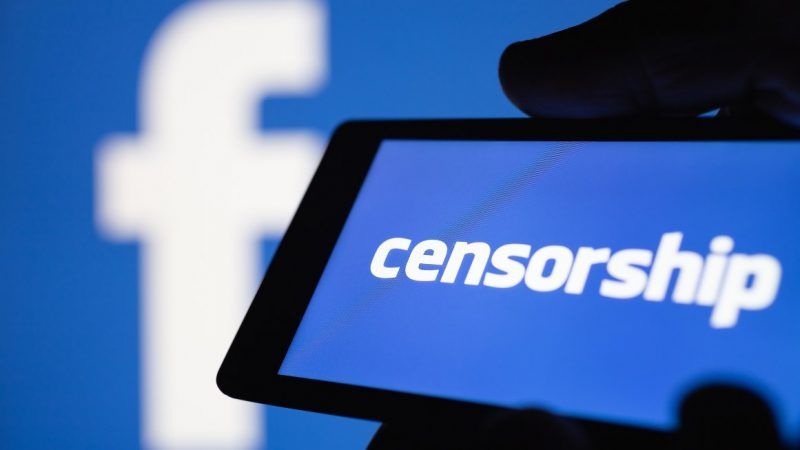The European Union May Order Facebook to Stop You From Calling Austrian Politicians 'Corrupt Oafs'
Censorship inevitably ends up being used to protect the powerful from criticism.

A pending ruling by a European Union court may force Facebook and other social media companies to censor content that government officials find offensive or illegal not just in their home country, but around the world. This includes speech that's considered protected by the First Amendment in the United States.
Today Advocate General Maciej Szpunar of the E.U. Court of Justice (a neutral legal advisor to the court) released an analysis and set of recommendations that the court will consider that explore how far an Austrian political official can push Facebook to remove posts with content considered offensive under that country's laws and whether Facebook can be forced to hunt down and remove similar content no matter where it's posted online.
If the E.U. court accepts Szpunar's recommendations, the dangers to free speech online could be significant.
The official at the center of the case is Eva Glawischnig-Piesczek, a now-retired Austrian Green Party politician and former member of the European Parliament. An Austrian online magazine published a story in 2016 about the Green Party supporting a minimum income welfare for refugees in the country. Glawischnig-Piesczek's picture appeared as the thumbnail photo when the story was shared on Facebook. A user who apparently disagreed with the Green Party's position expressed his disgust, calling her a "lousy traitor of the people," a "corrupt oaf," and a member of a "fascist party." That's the extent of the offensive speech indicated in the court documents. Those comments do not involve threats of violence. They do not even seem to involve "hate speech" as defined under the laws of many European countries.
Glawischnig-Piesczek asked Facebook to take the offending comments down, and Facebook declined, so she turned to Austria's defamation laws and got a court order forcing Facebook to act. But the case didn't end with Facebook censoring that one post. Glawischnig-Piesczek wants an injunction ordering Facebook to continue to censor any similar comments about her that show up on the platform, a request that is not limited to those comments that appear only to Austrian users.
And so the question becomes: How far can an Austrian politician go to censor mean comments about her? In America, those comments would be considered protected speech under the First Amendment. They're mean opinions, but they would not meet the U.S. definition of defamation.
We are seeing an increased willingness by various governments to demand complete censorship everywhere of speech that they do not approve of. The European Union is hammering out extremely extensive and oppressive copyright laws that will most certainly force platforms like Facebook and Twitter to engage in significant censorship worldwide in order to avoid massive fines. Canada's Supreme Court in 2017 forced Google to deindex a search result worldwide in order to protect a tech company from a firm that stole one of its product concepts and was selling it online.
The advocate general's analysis does seem to be moving in the direction of saying that Facebook could, indeed, be ordered to remove mean comments about Glawischnig-Piesczek from its platform if those comments are considered violations of Austrian defamation law, no matter which country the comments are originally posted from. As the advocate general's analysis notes, current law "does not preclude that host provider from being ordered to remove worldwide information disseminated via a social network platform."
The advocate general's opinion here is not binding Rather, it is part of the E.U. court's process to have an independent arbiter make recommendations to the judges before they make their final decision. It is a lengthy process that comes about when a member nation (Austria) seeks guidance on the application of E.U. regulations. We'll get a formal ruling in a few months. Facebook responded with a statement to Bloomberg worrying about the possible consequences:
The advocate general's opinion "undermines the long-standing principle that one country should not have the right to limit free expression in other countries," Facebook said in an emailed statement, adding that it hopes the EU court ruling "will clarify that, even in the age of the internet, the scope of court orders from one country must be limited to its borders."


Show Comments (27)